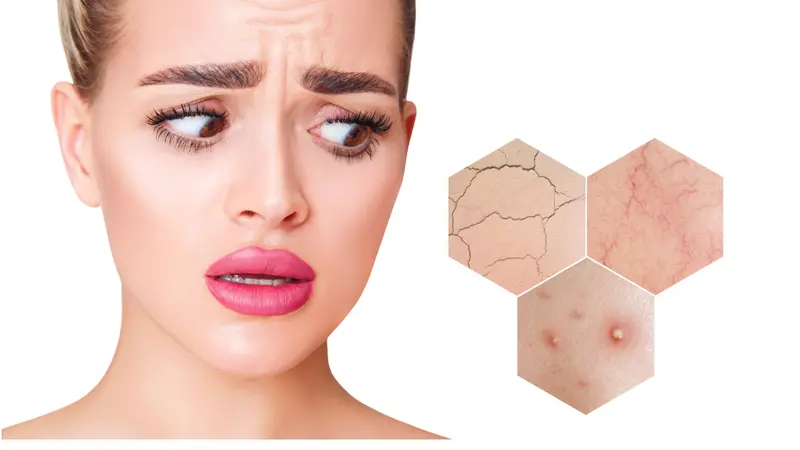

Natural

Natural
Many Dermatological Problems May Be More Than Skin-Deep
Skin, the largest organ in the body, is prone to a range of conditions and diseases from dryness to acne to psoriasis to cancer. While advanced-stage skin disease may require prescription or even surgical treatment, natural dermatology can be safe and effective in the prevention and management of many skin problems.
Holistic integrative skincare centers on the belief that the root cause of a skin condition is often not just skin-deep but lies in other imbalances in the body. It is a whole-person approach in which the patient is considered a co-equal partner and is critical in determining a skincare plan.
Diet and nutrition play an important role in skin conditions. A 2020 review published in Journal of Drugs in Dermatology examined the role of medical nutrition therapy in dermatology and skin aesthetics, concluding that some dermatology patients may benefit from nutrition intervention.
The skin disease rosacea, one symptom of which is ruddy, sunburned skin, may be activated by certain foods, including caffeine, alcohol, hot beverages, and spicy foods. The Western diet, which increases the level of insulin in the body, has been linked to acne.
Research has connected the gut, where much of the immune system resides, to skin conditions. Leaky gut has been shown to have relevance in dermatology. An imbalance of gut bacteria can lead to infections, acne, and autoimmune disorders. To restore good bacteria, a holistic dermatologist may recommend probiotic supplements or natural probiotics from diet.
Foods that cause inflammation and can be harmful to skin include sugar and dairy. Many holistic skincare practitioners will advise against eating these as well as highly processed foods such as white bread and fast food.
Stress and lack of sleep, which are the cause of numerous health problems, are also implicated in skin conditions. A holistic dermatologist may recommend stress-relief practices such as yoga, meditation, journaling, and spending time outdoors.
Many simple lifestyle measures can help prevent or manage skin conditions. As dirt and sweat can cause blemishes, taking steps to allow the skin to breathe, such as avoiding tight clothing or dense fabrics, can be useful. Freshening the air in the house with plants, air purifiers, or simply leaving the windows open may be recommended by a holistic skincare practitioner.
Research on natural skincare products is growing. One study, published in Food and Chemical Toxicology, examined the use of mushrooms in cosmeceuticals (cosmetic products with bioactive ingredients), suggesting that the byproduct waste of the mushroom industry held potential as a skincare ingredient.
REFERENCES
Dr. Michelle Jeffries. (n.d.). How holistic dermatology promotes healthy skin & a healthier life. https://drmichellejeffries.com/how-holistic-dermatology-promotes-healthy-skin-a-healthier-life/


 By
By



